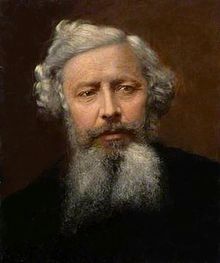
The Civic Gospel was a philosophy of municipal activism and improvement that emerged in Birmingham, England, in the mid-19th century. Tracing its origins to the teaching of independent nonconformist preacher George Dawson,[1] who declared that "a town is a solemn organism through which shall flow, and in which shall be shaped, all the highest, loftiest and truest ends of man's moral nature",[2] it reached its culmination in the mayoralty of Joseph Chamberlain between 1873 and 1876.[3] After Dawson's death in 1876 it was the Congregationalist pastor R. W. Dale who took on the role as the movement's leading nonconformist spokesman.[4] Other major proponents included the Baptist Charles Vince and the Unitarian H. W. Crosskey.[5]
- ^ Briggs 1963, p. 195
- ^ Briggs 1963, p. 196
- ^ Briggs 1963, p. 197
- ^ Parsons 1988, p. 48
- ^ Parsons 1988, p. 47